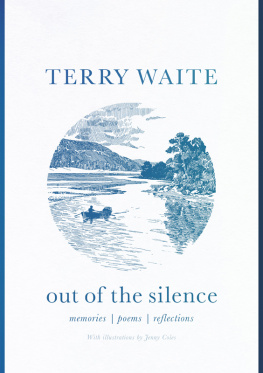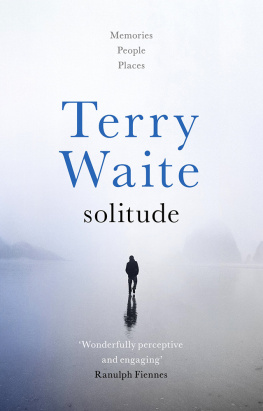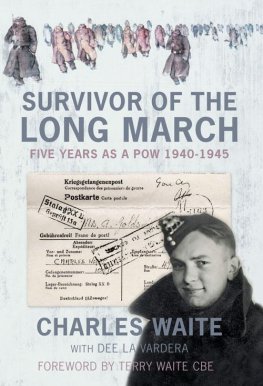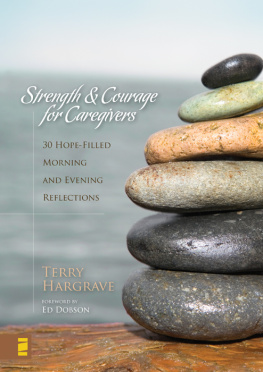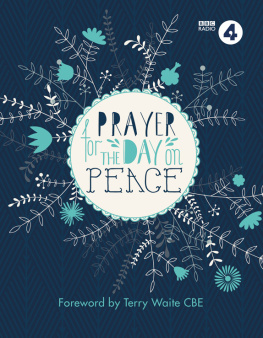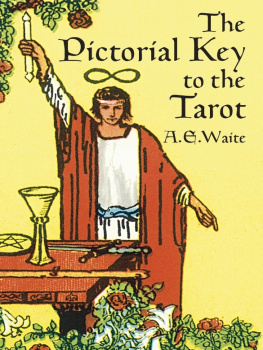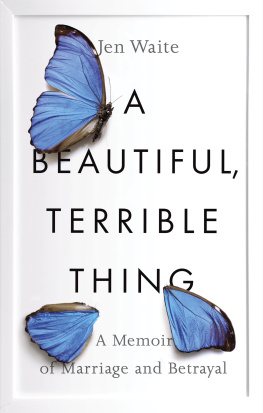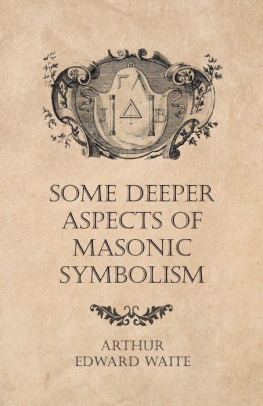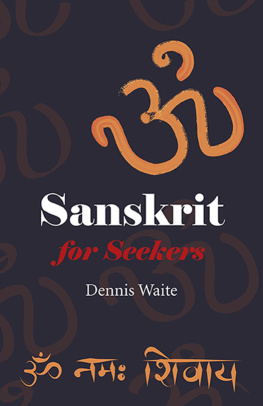Terry Waite has had a varied career and is best known as a hostage negotiator. He was also taken hostage himself in Beirut where he was kept in strict solitary confinement for almost five years. He has written about this experience in Taken on Trust (Hodder, 1993). He is also the author of Footfalls in Memory (Hodder, 1995) and two humorous books, Travels with a Primate (Hodder, 2000; Silvertail Books, 2014) and a comic novel, The Voyage of the Golden Handshake (Silvertail Books, 2015). He is a co-founder of Hostage UK and Y Care International and is president of Emmaus UK. First published in Great Britain in 2016 Society for Promoting Christian Knowledge 36 Causton Street London SW1P 4ST www.spck.org.uk Copyright Terry Waite 2016 Illustrations copyright Jenny Coles 2016 All rights reserved.
No part of this book may be reproduced or transmitted in any form or by any means, electronic or mechanical, including photocopying, recording, or by any information storage and retrieval system, without permission in writing from the publisher. SPCK does not necessarily endorse the individual views contained in its publications. Extracts taken or adapted from the Authorized Version of the Bible (The King James Bible), the rights in which are vested in the Crown, are reproduced by permission of the Crowns Patentee, Cambridge University Press. The extract adapted from The Book of Common Prayer, the rights in which are vested in the Crown, is reproduced by permission of the Crowns Patentee, Cambridge University Press. British Library Cataloguing-in-Publication Data A catalogue record for this book is available from the British Library ISBN 9780281077618 eBook ISBN 9780281077625 eBook by Graphicraft Limited, Hong Kong Contents To Joan Watters, Ella, Sophie, Sam, and in memory of Joan Harvey For me this is an unusual book for it is a departure from my usual style of writing. It is set mainly in New Zealand, a country that I have visited many times and have grown to love for its tranquillity and natural beauty.
Having said that, the location might well be anywhere in this world for it simply provides the vehicle for an inner journey which I have attempted to express in a concise prose style. The result is not a tidy book for there is a certain amount of rambling within its pages. That is how I have found my mind works, as I have attempted to record something of the different inner pathways that I have trodden across the years. None of the prose poems in this book has been published until now but several have been read in public and have evoked an enthusiastic response from many listeners. How they will be received by the reader I know not. All I can hope for is that they may evoke a response that will encourage some readers to reflect on their own inner journey and in so doing benefit from that reflection.
There are many people to whom I am indebted for this book. First, Jenny and Alan Coles, who were generous always with their hospitality and kindly invited me to both their home in Cornwall when I needed time to write, and to share the holiday house they were renting in Hawkes Bay, New Zealand. Jenny must have a special mention as without her encouragement and support these poems would never have seen the light of day. I would frequently write something on scraps of paper, or emails, and she would collect and save them as she was always convinced that they ought to be published. She typed and re-typed and never seemed to lose patience. The sketches throughout the book are also her work.
Sarah, my long-suffering secretary, dealt expertly with the myriad of requests and invitations that came to me when I was away for longish periods of time in New Zealand or elsewhere. I could not have managed all my other responsibilities without her help. Frances, my wife, has accommodated herself to my frequent absences, which have been the pattern across a lifetime. I remain grateful to her for her patience and forbearing. I remain deeply indebted to my good friend, Linda Brockbank, who spent many hours reading the manuscript and made many helpful suggestions regarding its design which eventually led to its publication. Our thanks must also go to Philip Law and the staff of SPCK for their enthusiasm.
Finally, the several individuals to whom I read an occasional poem and who were brave enough to give me an honest response thank you all. In the winter of 2012 I left England for New Zealand where I was to join a cruise ship in order to deliver a series of lectures. Friends suggested that I might care to fly out early and share their holiday house which they had rented in the Hawkes Bay area. They knew I wanted to write a book and said that this lovely part of New Zealand would be an ideal place in which to start work. I did and thus this book was born. Over 20 years previously, when held in solitary confinement as a hostage, I had written a book in my head, Taken on Trust .
It was written in that way as I was not allowed pencil and paper and thus it was the only way possible I could manage to write. Years later I committed it to paper at Trinity Hall, Cambridge. I had also written novels and scraps of poetry in the same way but they have long since been lost to memory. For those readers unfamiliar with the story suffice to say that as a member of Archbishop Robert Runcies staff I had engaged in successful negotiations for the release of hostages in Iran and Libya. In the mid-1980s, when hostage-taking was rife in Beirut, I was at first asked to be involved in seeking the release of two American clerics who had been kidnapped there. Later, I was asked by relatives to try and do something for British hostages.
Quite frankly, it was with some reluctance that I took up these cases. Alas, I fell victim to political duplicity which went by the name of Iran-Contra. This matter has been well documented elsewhere and this is not the place for me to go into lengthy explanations. I refused to let go of the hostages after I had established face-to-face contact with their kidnappers, and when I received a promise of safe conduct to actually visit the imprisoned men, whose health was said to be failing, I accepted knowing in my heart the acute risk I was taking. Robert was reluctant to let me return to Beirut at a time when there had been the political collapse occasioned by the Contra affair and I fully appreciated his reluctance. I would have said exactly what he said had a member of my staff wanted to continue under such adverse circumstances.
However, he finally agreed to my return and I went back. The kidnappers broke their word to me which, frankly, did not come as a great surprise and I spent almost five years in captivity. I do not in any way regret taking that decision for myself, but I do regret the anguish it caused both to my family and to Robert and his wife. I have hazy recollections of my return to the UK after spending so many years incarcerated in Beirut. It was not all plain sailing. Some in the media accused me of being deeply implicated in the Iran-Contra arms-dealing scandal when the truth was that I knew absolutely nothing at all about that matter.
Others claimed that I thought myself to be invincible because I believed God would protect me from being captured! Nothing could be further from the truth. I have never believed that, because one has a faith, then one is given super protection from the normal ups and downs of life. Such comments disturb me not at all now, but then, when I was feeling vulnerable and having to face the task of returning to a world that had changed in so many respects from the world I knew previously, they hurt me deeply. I gave an extempore address after landing at RAF Lyneham. After delivering it I gave no further interviews for over a year. Apart from a brief verse printed in my school magazine over 60 years ago I have never published or written poetry, but as the years went by I decided that I ought to try writing myself in order to give expression to feelings and emotions common to all human beings, and also to try and describe concisely some of the events that have occupied my time since my release years ago.

